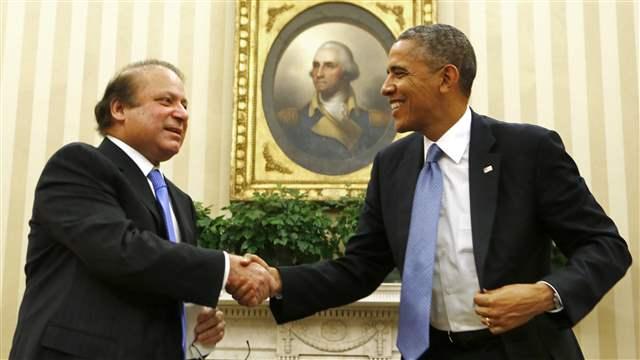Does The US-PAK Joint Statement Work Against India?
What the US-Pak joint Statement means for India

NEW DELHI: All eyes in India have been closely following Pakistani Prime Minister Nawaz Sharif’s visit to the US, with many relieved that the Pakistani leader is returning to Islamabad without any major announcement or any concrete headway on US-Pakistan civil nuclear agreement.
Nevertheless, there were many points in the discussions between the Pakistani PM and US President, that are a cause of concern for India. The recent violence along the Line of Control figured in the bilateral talks, with a joint statement expressing concern and calling for confidence-building measures and effective mechanisms.
The joint statement between PM Sharif and President Obama further “ emphasized the importance of a sustained and resilient dialogue process between the two neighbors aimed at resolving all outstanding territorial and other disputes, including Kashmir.”
Talks between India and Pakistan have been a major point of confrontation, being called off at various levels over what India claims is Pakistan’s insistence on dragging in Kashmir. The joint statement, however, clearly indicates the importance of talks taking place, with Kashmir figuring right in.
Another point of interest for India, is the fact that “President Obama expressed support for Pakistan’s efforts to secure funding for the Diamer Bhasha and Dasu dams to help meet Pakistan’s energy and water needs.” India has been opposed to the construction of these dams in Pakistan Occupied Kashmir. Because of India’s objection, Pakistan has had trouble securing funding for these dams, with prospective investors - the ADB, China and Russia - asking Pakistan to procure a No Objection Certificate from India. In this context, the US’ support for Pakistan seeking funding for the dams is a blow to India.
Further, although both Pakistan and the US have denied that the two countries may initiate nuclear talks, where Pakistan may gain a possible NSG waiver in exchange for limiting Pakistan’s missile capability, the US has reaffirmed that “nuclear security” is always on the agenda in bilateral discussions with Pakistan. As such, the joint statement notes: “President Obama and Prime Minister Sharif recognized the shared interest in strategic stability in South Asia. The two leaders underscored that all sides should continuously act with maximum restraint and work jointly toward strengthening strategic stability in South Asia. They acknowledged the importance of regional balance and stability in South Asia and pursuing increased transparency and uninterrupted dialogue in support of peaceful resolution of all outstanding disputes.
President Obama and Prime Minister Sharif discussed the continuing threat of nuclear terrorism. The United States and Pakistan committed to work together to make the Nuclear Security Summit hosted by President Obama next year a success. President Obama welcomed Pakistan’s constructive engagement with the Nuclear Security Summit process and its cooperation with the International Atomic Energy Agency and other international forums.
The leaders noted Pakistan’s efforts to improve its strategic trade controls and enhance its engagement with multilateral export control regimes. Recognizing the importance of bilateral engagement in the Security, Strategic Stability and Non-Proliferation Working Group, the two leaders noted that both sides will continue to stay engaged to further build on the ongoing discussions in the working group.”
Although there has been no major breakthrough regarding a nuclear deal, with the reports remaining mere speculation at this stage, India is most certainly going to be watching this space closely.



